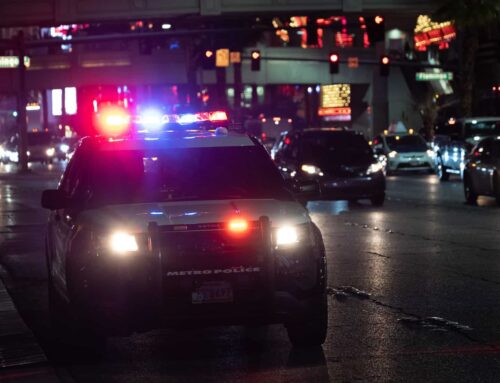DUI in Texas: Refusal to Take a Blood, Breath or Urine Test
DUI in Texas: Refusal to Take a Blood, Breath or Urine Test – If you are driving in Texas and you get pulled over by a traffic officer, should you submit to a breathalyzer or blood test when the officer suspects intoxication? That question lingers on most drivers who might be on the right or even guilty when they get stopped. This situation arises when one gets arrested on suspicion that one is driving while intoxicated DWI or driving under the influence DUI.
DWI or DUI
In Texas, you are expected to drive having the normal use of your mental or physical faculties. If this is not the case you get arrested for DWI or DUI by reason of the introduction of alcohol or a drug. To make it clear, we must first differentiate between DUI and DWI, since your age as a driver will determine which offence you will get. If a driver falls under the age of 21 is pulled over and the peace officer discovers any amount of alcohol in the individual’s system (it is illegal for a teen driver to operate a vehicle with any detectable amount of alcohol in his or her system), then that person can be charged with a DUI.
Meanwhile, if the driver of the vehicle is age 21 and above, and the arresting officer finds a blood alcohol content (BAC) of .08, then the legally intoxicated person will be charged with a DWI. A person under the age of 21 can still be charged with a DWI if the same amount of blood or breath alcohol concentration is detected.
Implied Consent Law
Section 724.011 of the Texas State Transportation Code introduce us to the Texas implied consent law. This law will be of great importance in determining whether you should refuse to take a blood, breath or urine test. It states that, if a person is arrested for DWI/DUI in Texas, the individual must submit to the taking of one or more specimens (breath or blood) for analysis to determine the alcohol concentration or the presence of drugs, controlled substances, dangerous drugs, or other substances in that person’s body .
You do not have a right to an attorney until when you get arrested or placed in custody. The importance of recording the process of evaluation is that you might be lucky to get an occasion where the arresting officer misrepresents the law. This evidence can be used by your lawyer to your advantage when you are defending your driving rights in a court hearing by impeaching the officer.
The police are not allowed to make you take the test by force. However, if you are involved in an accident or a police officer deems it necessary and you refuse, then you will be found guilty of violating the implied consent law. You might still be successful in evading the implied consent law(the officer lacks a warranty or uses unconstitutional means), but the arresting officer can still charge you for DUI upon suspicion that you are legally intoxicated ; the state will also find other means to prove that you guilty.
You consent to submit to any type of specimen or chemical test if you are arrested for an offense arising out of acts connected with intoxication or offences under the Alcoholic Beverage Code. Breath or blood tests are compulsory if:
- You are involved in an accident,
- The officer reasonably believes intoxication as the cause
- Someone suffers serious bodily injury,
- Someone gets transported to a hospital or other medical facility for medical treatment
- Someone dies
If a person is incapable of refusal (dead or unconscious) they still have not withdrawn from the law, relevant authority is assigned to obtain the specimen for analysis. The officer might pull you over because of some behaviors that suggest that you are intoxicated, these include:
- Making sudden stops and starts on the road
- Weaving on the road
- Drifting from lane to lane
- Straddling two lanes at once,
- Narrowly avoiding collisions
- Turning abruptly and/or with a wide radius
- Going more than 10 miles over the speed limit
Before requesting for a specimen, the arresting officer must provide the following information orally or in written form:
- Your refusal may be admissible in a subsequent prosecution
- Your driver’s license will be automatically suspended
- The department will deny you the issuance of a license if you are caught without one
- You have the right to a hearing on the denial or suspension
Before taking your blood, breath or urine test, the arresting police might want to test your reflexes, balance, and mental capabilities. If the officer detects the smell of alcohol, bloodshot eyes and slurred speech, then the officer might order you to step out of your car for a field sobriety test. The National Highway Traffic Safety Association recommends the horizontal gaze test, the walk-and-turn, and the one-leg stand.
Each state has its own laws when it comes to someone refusing chemical test in a DUI case. If the officer makes a nonconsensual search of a DUI suspect’s blood, then one has an appeal to the United States Supreme Court under the Fourth Amendment. Personally, every driver should be aware of his or her constitutional rights. You can depend on your Texas lawyer to help identify and protect your rights.
Your Texas DWI attorney might advise you to provide the prosecution with as little evidence against you as possible. Your negative performance on the field sobriety tests can be used against you in court. However, if you are not functioning properly and you have been drinking such that your BAC reads below .08%, you can still be arrested for DWI.
Refusing to Take the Test administrative suspensions
| 1st offence | 2nd offence | 3rd offence | |
|---|---|---|---|
| License Suspensions | 180 days | 2 years | 2 years |
The field sobriety test is optional. You may argue that environmental conditions and physical conditions can affect the results of the tests. You can refuse to take the test, but the officer won’t hesitate to arrest which puts you in a fix where you need to submit to the implied consent law. Sometimes the blood, breath or urine test might not be accurate. It is best to hire an attorney who can help you challenge these results in court.
Refusal and test results
The responsibility of an officer when he or she arrests you is to request a chemical test after informing you about the consequences of not submitting. If you refuse to take a blood, breath or urine test, then you will have to sign a statement. The officer will also serve you with a notice of license suspension or denial, take your driver’s license and issue you a temporary driving permit (expires on the 41st day after the date of issuance). The officer will write a letter of refusal to the director of the department who is expected to approve the form.
When you submit to taking the chemical test at the request of an officer, then you have the rights to the full information for the analysis. You are also given a 2 hour period to take an additional specimen by contacting a physician, registered professional nurse, chemist or qualified technician. You can choose the type of chemical test available at the scene. If you request one that is not available and refuse to take the rest then you are bound to lose in the court hearing. Most people take the ones that can be retested.
If you fail the breath test, then you can request for a second test which is either the urine or blood test. When you have multiple tests, you have the capability of comparing the test results for your defense. If you are sure that you are sober, choose the blood test- it is the most accurate test. However, if you are concerned of substances in your body then take the breath test alone. If you have a guilty conscious and you have prior DUIs, then you should not take any of the tests available.
Court hearing
The driver is given a 15 day period to request a hearing from the day of arrest or suspension notice. The window period also applies to those who fail a specimen test. Your case will be heard by an administrative law judge in Texas. This environment is where your refusal will be used against you by the prosecutor. This point is serious since it determines if you will be capable of satisfying your day to day needs.
There are two suspensions that you might encounter and these are the administrative suspension and the court order suspension. You will need an experienced lawyer to help you fight your charges and reduce your penalties if you are in the wrong. For those who have a need to drive (home, school or work) they can petition the court for an occupational driver’s license. If you successful get one, you are restricted from driving more than four hours a day- another petition can help you get more hours.
Your attorney can argue from the point that Breathalyzer tests may have an inaccurate margin of as high as 30%. There are cases where an individual’s metabolism has altered Breathalyzer results. People tend to refuse to take a BAC test because the administrative penalty for BAC test refusals is much less severe compared to a DUI conviction. However, those who are not lucky may end up with both convictions and subject to the standard DUI penalties as well as the administrative penalties.
You might not get a DUI conviction if the prosecutor lacks evidence against you, so it is best to cooperate by remaining silent when you are pulled over or arrested by an officer. If you want to decline from answering accusatory questions, then you will have to do it in a polite and courteous manner. There are certain important information which should not be presented to the officer, such as your drinking pattern and personal details.
DUI license suspension
| First offence | Second offence | Third offence | |
|---|---|---|---|
| Suspension duration (21 years of age and below) | Not less than 30 days | Not less than 60 days | Not less than 180 days |
| Suspension duration (21 years of age and above ) | 180 days | Two years | Two years |
DUI
We all know that DUI is a crime and if neglected it can lead to the loss of someone’s life, injuries or damages. For a DUI, any amount of alcohol in the driver’s body system is a clear evidence that the individual was not in the right mental state behind the steering. To avoid DUI or chemical test refusal, you just have to stay away from the road when you are drunk, even if it is one beer. You can also consider having a designated driver or take a cab if you feel that it is necessary to move around.
Failing a chemical test may depend on the type of drinks you consume, but weight, food intake, gender and body type plays a part. Sometimes the food you take might reduce the effect of alcohol in your body system by slowing down the absorption. Drinks have different alcohol concentration so there are some which might make you impaired by just half a glass while other might require you more than two bottles to equality match the intoxication.
You are lucky that the penalties for a Texas DUI charge are less severe than a DWI charge. However, this should not be a reason for committing multiple offenses, because the zero tolerance law (zero alcohol or else the penalties will increase) in Texas will catch up with you and you will end up facing your worst nightmare. If you make the decision of refusing to take a blood, breath or urine test, you are supposed to deprive the officer any evidence whatsoever that can lead to a DUI conviction.
Some drivers are clever, they make this decision because they know that they are guilty. Hence, to avoid the penalties one has to choose ways that will deny the arresting officer evidence. Some people have taken the initiative of understanding the mechanics of the human body to determine how alcohol is processed and reserved in the blood. This does not apply to alcohol alone, other drugs like marijuana or cigarette might cause impairment.
| (BAC) | any detectable amount | .08 or greater |
|---|---|---|
| Fine | Up to a $500 | Up to a $2,000 |
| Driver license suspension | 60 days | 90 days – a year |
| Community service | 20 – 40 hours | |
| Jail | 3 – 180 days | |
| Program | Mandatory alcohol – awareness classes | Authorized Alcohol Education Program |
| Annual fee (3years) | $1,000 – $2,000 |
The intensity of the penalties may vary depending on your previous conviction, the type of charge (misdemeanor or a felony) or if you have caused a fatality or injured a person. Your attorney may argue on the basis of specimen preparation, preservation, and contamination that may facilitate an independent analysis.
If you happen to find yourself in this situation it is essential to educate yourself on Texas DUI laws. It does not help you much to refuse to take a blood, breath or urine test if you have been arrested. Your refusal is not a guarantee that you won’t be convicted for a DUI. The officer will do everything possible to arrest you and put you under the implied consent law.
When the time come that you will feel the need of getting an insurance requirement such as SR22, FR44, SR50, and SR22A. Our services will ensure that all requirements are met so that you can get your Texas driver’s license back. Contact us for more information about DUI in Texas and refusal to take a blood, breath or urine test. To enjoy our affordable and most reliable services in Ohio, Texas, Florida and California, linking with us through our auto quote form.
If you have questions, don’t hesitate to call: (855) 438-7353. One of our licensed agents will help you right away.






